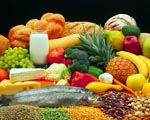
Did you get fooled on April Fool’s Day yesterday? It’s a fun day to pull pranks and fool people! One thing in life you don’t want to be fooled on is nutrition and health advice and there is plenty of fooling going around due to the wide reach the internet and media have. When looking for nutrition advice, I encourage you to seek out a reliable and credible source who has the education and credentials to give you a credible answer to your questions. Registered Dietitians are this reliable and credible source and I am always here to help you! The Academy of Nutrition & Dietetics and the Food and Nutrition Science Alliance have created a list of 10 red flags of junk science or misinformation. When you see any of these, take proper precautions!
- “Recommendations that promise a quick fix
- Dire warnings of danger from a single product or regimen
- Claims that sound too good to be true
- Simplistic conclusions drawn from a complex study
- Recommendations based on a single study
- Statements refuted by reputable scientific organizations
- Lists of “good” and “bad” foods
- Recommendations made to help sell a product
- Recommendations based on studies not peer reviewed
- Recommendations from studies that ignore differences among individuals or groups.” http://www.eatright.org/Public/content.aspx?id=6442475642
-Kelsey

